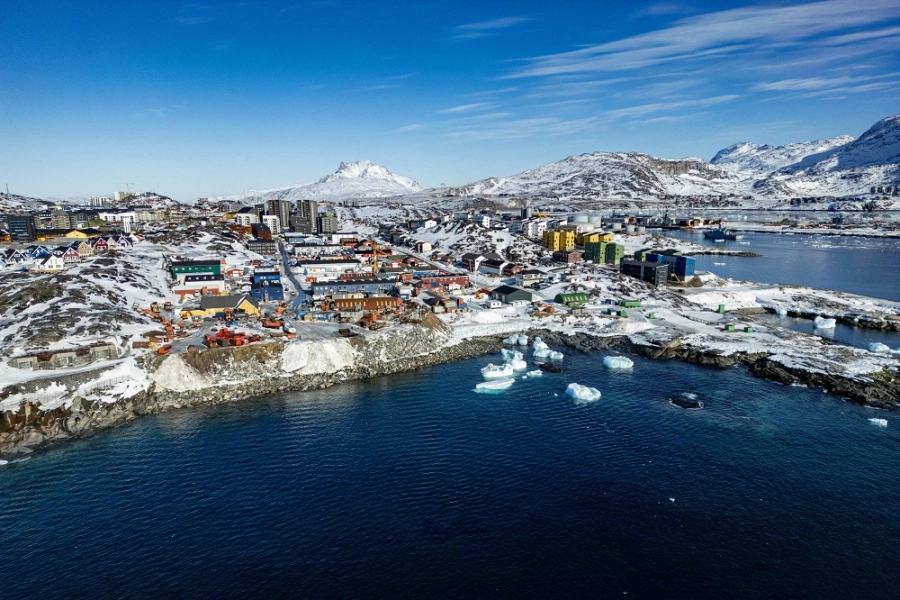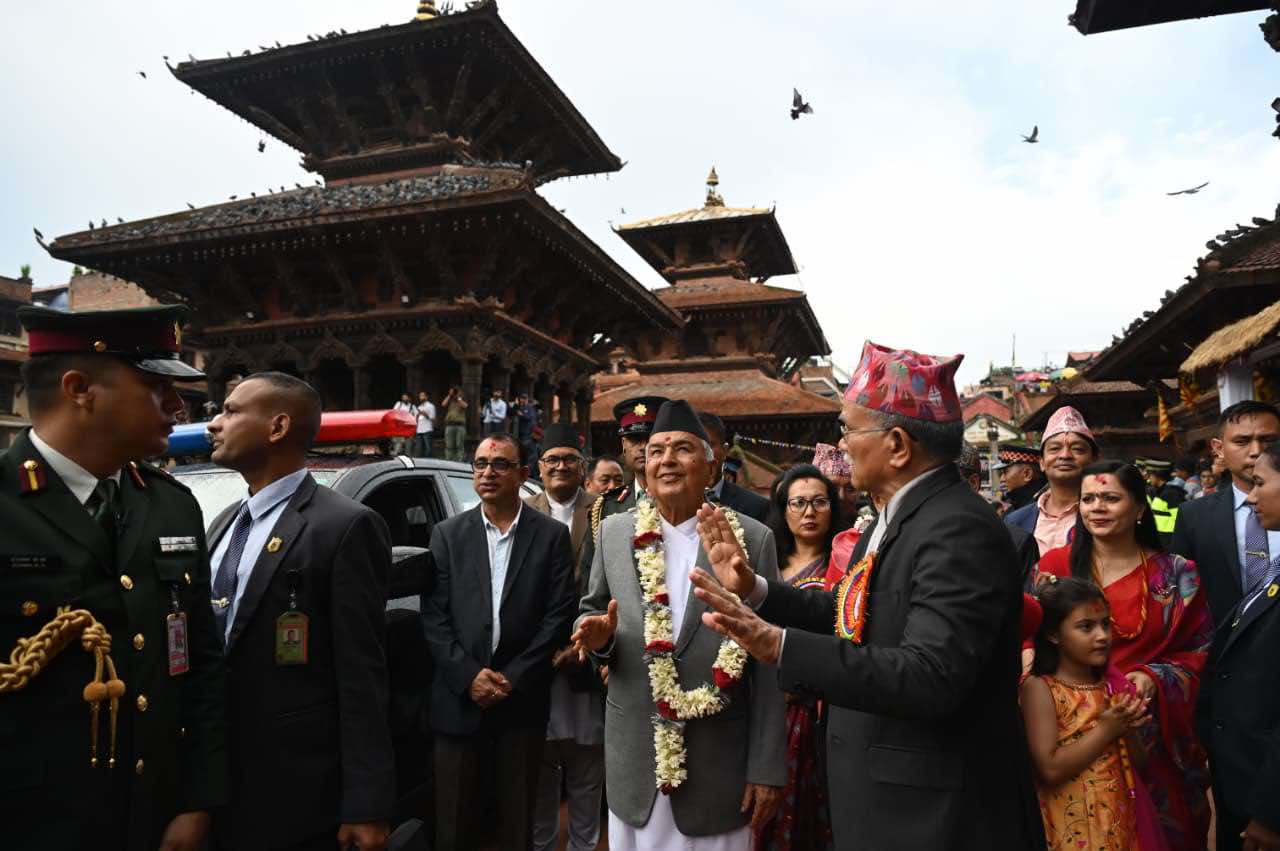When Radha begins to speak of her experience, one is left in awe. This 40-year-old lady has suffered a lot but at the same time given back so much to the society despite the constant upheavals put on her way.[break]
“I was born twice,” says Radha who chose to walk the difficult way in life though aware that the journey would never be easy. Born in Chitwan, social worker Radha worked in Jumla even during the Maoist insurgency decade, where she faced near-death experiences everyday. She even survived horrific hours of crossfire and constant bombings, making her believe that she was given a second chance to live for a reason. Her connection with Jumla dates back many years and her life story is not an ordinary one.
Brought up in Chitwan, her family wasn’t financially secure. She was the fourth girl child and she still remembers how her mother had to face discrimination and oppression for not bearing a son. As a child, due to the dearth of proper reading materials, she used to question her father regarding their poverty.
“My father taught me that there are less fortunate people in places like Jumla and that we were better off than many people in the rural areas,” says Radha who realized early on about the harsh realities of life.
Photo Courtesy Radha Poudel
Training program on "Real men should respect and provide equal rights to women" conducted for the local men of Tamti, Jumla.
Though the family faced financial brunt, education was considered the first priority which motivated Radha to further her studies. She started her career as a nurse at Bharatpur Hospital after she received her nursing staff degree from Pokhara.
During her practice as a nurse, she gained more experience of working with patients and learning from their suffering.
City life was completely new to her when she came to Kathmandu for the first time towards the end of 1994. One of the events that she believes helped in building up her confidence was when she was selected to be a part of the nursing training which was piloted by WHO for the first time in Nepal in the beginning of 1995.
“Only five of us were selected for the training which helped in shaping my personality as I got the assurance that I could still compete in the city,” says Radha.
She recalls those times when she didn’t even know how to turn on the computer. In time, she learnt the tricks of the trade and embraced all sorts of challenges, be it small or big. In the meantime, she completed her Masters in Health Education and Sociology from Kathmandu.
Her life changing decision however took place in 2001. It was not out of whim but Radha decided to leave her permanent and secure government job of a nurse in order to work for the people of Jumla.
On the very first day, she was disheartened to see children starving and thereon decided that she would stay back. She was also part of the Safe Motherhood project, funded by DFID, as a health worker but Radha expanded her work beyond that.
She still clearly remembers an incident when an emergency case of a patient suffering from diarrhea was reported. It was later found that the patient was actually suffering from retained placenta which could have been treated with a minor operation. But due to lack of awareness, she bled to death. Radha explains that such cases were common sights in rural areas due to lack of proper healthcare.
Everyday, women and girls would come to the hospital with diseases which were preventable, and there were as many cases of those suffering from gender-based violence.
Besides that, she also saw poor children deprived of education and engaged in household works. “It was then I realized that the birthplace of an individual is not by choice and it is up to you to change your destiny,” says Radha.
Reaching the villages would take hours of walk but she was committed in her deeds as Jumla was now her workplace. One such incident that is etched on her mind is when the Maoists attacked Khalanga during the insurgency period. There were constant shots fired at her room. When she moved to the next room of the house, it had already been bombed and was set ablaze. She saw many of her friends dying but she survived.
Regardless of such events, she continued working as a nurse during the civil war between Maoist insurgents and government army. She was suspected by both Maoists and government as both parties thought she was helping the other. Working in such isolation and conflict-ridden area, she would get constant threats to leave her work and was at risk of being abducted and killed.
“People would ask for donations and there would be curfews, making our work even more difficult. There was no security at all. Everyday, my friends and I would congratulate each other for surviving the day,” she says.
Despite these obstacles, she managed to set up a blood bank, a hospital for surgery and provided stretchers to assist sick people in the communities. She managed all of these without a proper fund but by collecting money from the locals and her friends.
As a health worker, Radha even treated injured soldiers and rebels in their field as she was the only medically trained person in the area. People weren’t even aware that they should visit hospitals where basic facilities were provided. She thus conducted a series of health camps where she dealt with many severe cases and taught the importance of healthcare to the local people.
Radha has seen a lot of ups and downs in her life. Her mother passed away recently, and though she has a younger brother, she insisted on performing the death rituals herself.
She credits her parents for giving her the values that made her who she is today.
“My mother always taught us that crying was never a solution and encouraged us to be of help to those in need. I learnt that honesty pays off and you should be ever ready to fight even alone for truth,” she says.
In the course of time, Radha completed her third Masters on Development Management from the Institute of Management in the Philippines in 2009. When she was back in Kathmandu, she got a lot of high-profile job offers but her intention was to work for the people of Jumla.
After gaining expertise from her studies, she founded Action Works Nepal in 2010, an NGO that has been working in the most conflict-affected regions of Nepal besides the Karnali region. Through the organization, she initiated several campaigns to raise women’s issues and promote human rights and bring out the voices of conflict-affected communities to the forefront.
One of the campaigns of her organization, Miteri Gau, or Let’s Live Together Campaign, is fundraising and it engages rural and marginalized communities in dialogues on the rights of women and roles of community members in a peaceful society.
There are issues of poverty, discrimination and health problems which she thought could be addressed only if she could participate out there in the field.
Apart from health campaigns, Radha has also worked in providing scholarships to children from rural areas to study in Kathmandu. So far, she has networks with 30 schools for the program where the plan also includes distributing books in the Karnali region.
She stresses a case where even today a grade five student in Jumla is unable to spell out her name. “There’s still so much to be done as many children are limited to taking care of siblings, domestic chores and farm works,” she says.
She strongly supports the statement that “Absence of war is not peace,” and until women are educated and treated equal, there will be no peace.
Radha travels back and forth from Jumla but prefers spending more time there as she considers it her second birthplace. In spite of constant struggles, she has never let anything bring her down; in fact, with each obstacle, she has come out stronger. She believes that she still has a long way to go and is persistent in her drive to uplift the condition of rural people. No matter how much is said about her good deeds, it will always be less. She stands as a true example of a rebel – but with causes.
nistha.rayamajhi11@gmail.com
Anisha wins the title of Dopper Changemaker 2019





































